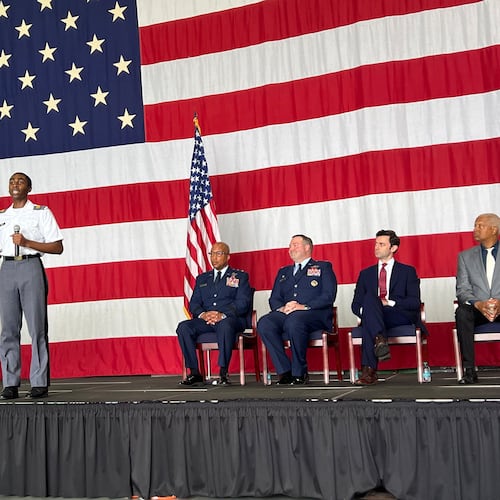A group of House Republican lawmakers filed legislation this week to create a state Journalism Ethics Board to develop “canons of ethics” for journalists in Georgia.
The measure was sponsored by Rep. Andy Welch, R-McDonough, a lawyer who has expressed frustration with what he saw as bias from a TV reporter who asked him questions about legislation recently. He said he thinks the profession could benefit by setting ethical standards for all journalists to follow. Five other Republicans signed on to sponsor the bill.
Welch announced he would be resigning from the General Assembly after the session, which ended Tuesday. However, his bill remains alive for consideration during the 2020 session.
Welch’s bill, House Bill 734 would create an “independent” board, with the chancellor of the University System of Georgia forming a body to appoint members.
The board would create “canons of ethics,” issue advisory opinions, develop voluntary accreditation, set up a system for investigating complaints and sanctioning accredited violators of such canons.
If approved, the bill would also mandate that anyone interviewed by the media would be able to request and receive copies of photographs and audio and video recordings taken by reporters and photographers. Such copies would have to be provided free of cost, even though state and local governments are allowed to charge the public for copies of any documents it provides.
If a media outlet refuses to provide the copies, it would be subject to a lawsuit and a civil penalty, under the bill.
In calling for subjects of interviews to get access to photographs, audio and video recordings, Welch is setting a higher standard than he and other members of the General Assembly are under. The General Assembly long ago exempted itself from the Georgia Open Records Act, which applies to all other governmental entities in the state. Only a month before the start of the 2019 session, the state was in court trying to block a group from getting legislative records on how a bill got passed in 2012.
Richard T. Griffiths, president of the Georgia First Amendment Foundation, said, “First I thought this was an April Fools joke, but this is clearly an effort to rein in those who have been scrutinizing what’s been happening at the Legislature. In this country there is a First Amendment which reads, in part: Congress shall make no law … abridging the freedom of speech or of the press. This applies even to the Georgia Legislature.
“Frankly, this is the kind of proposal one would expect to surface in a banana republic, not the Peach State.”
It is not unusual for lawmakers to disagree with media coverage during legislative sessions. For instance, some Republican House members have expressed unhappiness this year with an investigation by The Atlanta Journal Constitution and Channel 2 Action News that revealed that House Speaker David Ralston, a lawyer, on numerous occasions used legislative privilege laws to delay court cases for his clients, sometimes for years.
About the Author
Keep Reading
The Latest
Featured


